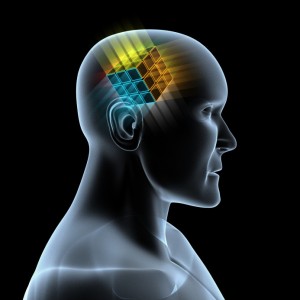Let’s Get Digical
I’m becoming a digical life form. Here’s the evidence:
- I wear an electronic bracelet that keeps track of all the calories I burn. It even beeps to remind me when I sit still for too long.
- An app on my smartphone keeps track of the calories I consume. In theory, I should be able to keep my calories-in lower than my calories-out.
- We were in Berlin recently and were very impressed – but somewhat confused – by the extensive public transportation system. The solution? A digital mapping app on my smartphone. We could get from anywhere to anywhere quickly and easily (and drink beer along the way).
- My smartphone also controls my new digital hearing aids. Among other things, I can program my earbuds to a given location, like a conference room. Whenever I return to that conference room, my smartphone senses where I am and sets the parameters automatically. In some cases, I can hear better than my colleagues with “normal” hearing.
- All of the devices I use today are external. If I live for another 20 years or so, I’m sure that some of the devices will be implanted in my body.
Digical is a blend of the physical and the digital. I think of it as adding digital extensions to humans (or other animals). But Bain & Company actually coined the term (in a recent white paper) and they think of it as business, not biology.

Let’s get digical.
In Bain’s usage, digical refers to the merger of a company’s physical and online operations. When e-commerce took off back in the 90s, some wild-eyed analysts predicted that it would spell the end of brick-and-mortar stores. As Bain (and many others) have pointed out, nothing could be farther from the truth.
As we all know (but sometimes forget) humans are social animals. We like to be around other people. We generally thrive in society and wither in isolation. (It’s why tall buildings make you crazy). For this very reason, Bain suggests that the future of retailing will be the digical world. Retailers will increasingly merge physical stores and online operations into “omnichannel” solutions.
Other industries – especially entertainment and technology – will go digical quickly. Even industries like construction, which might not seem like digical leaders, are getting digital tools to dig better holes and build smarter buildings. Smart tractors use GPS and a databank of seed information to help farmers plant smarter, conserve resources, and increase yields.
In reading Bain’s white paper, three things stood out for me:
- The biggest change is yet to come – Yikes! We’ve seen a lot in the past two decades. But Bain says the near future “…will bring far more innovation to most industries than they have seen in the past.”
- Silos are major impediments – siloed organizations will be followers at best, never leaders. Perhaps the first step to becoming digical is to break down silos and…
- …build a cohesive culture – The Bain authors never actually use Peter Drucker’s famous quote – Culture eats strategy for breakfast – but they certainly imply it. To become digical leaders, focus on culture first.
I like the term digical; I hope it becomes the word of the year in 2014. Bain has a very clear definition and useful advice for businesses. Personally, I’d like to see the definition expanded to include biology as well as business. After all, we’re all going digical.
(Digical is a sales mark of Bain and Company).